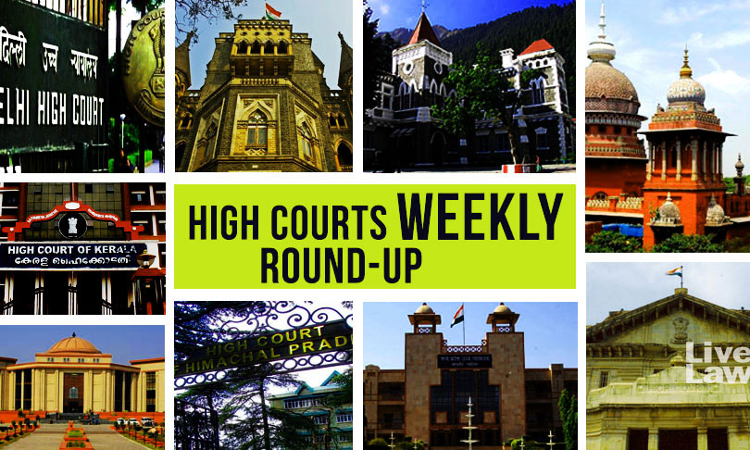- Home
- /
- News Updates
- /
- High Courts Weekly Roundup
High Courts Weekly Roundup
Akshita Saxena
2 Aug 2020 4:53 PM IST
Week Commencing From July 27, 2020 To August 2, 2020 Allahabad High Court 1) Allahabad HC Directs Petitioners To Approach Registrar General For Use Of A4 Sheets With Double-Sided Printing In Court Filings [Saumitra Anand & Ors. v. Registrar General, HC & Ors.] Observing that the matter required "serious consideration in administrative side," the division bench comprised...
Next Story



